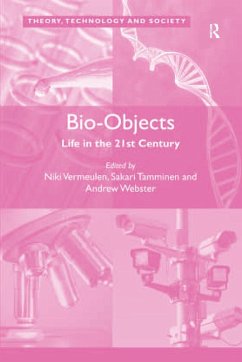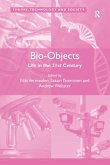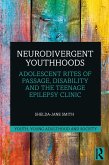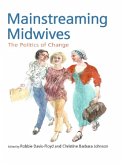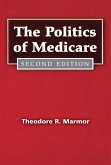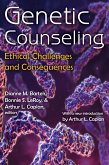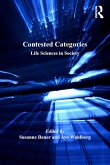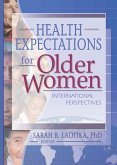Bio-Objects (eBook, PDF)
Life in the 21st Century
Redaktion: Vermeulen, Niki; Webster, Andrew; Tamminen, Sakari
52,95 €
52,95 €
inkl. MwSt.
Sofort per Download lieferbar

26 °P sammeln
52,95 €
Als Download kaufen

52,95 €
inkl. MwSt.
Sofort per Download lieferbar

26 °P sammeln
Jetzt verschenken
Alle Infos zum eBook verschenken
52,95 €
inkl. MwSt.
Sofort per Download lieferbar
Alle Infos zum eBook verschenken

26 °P sammeln
Bio-Objects (eBook, PDF)
Life in the 21st Century
Redaktion: Vermeulen, Niki; Webster, Andrew; Tamminen, Sakari
- Format: PDF
- Merkliste
- Auf die Merkliste
- Bewerten Bewerten
- Teilen
- Produkt teilen
- Produkterinnerung
- Produkterinnerung

Bitte loggen Sie sich zunächst in Ihr Kundenkonto ein oder registrieren Sie sich bei
bücher.de, um das eBook-Abo tolino select nutzen zu können.
Hier können Sie sich einloggen
Hier können Sie sich einloggen
Sie sind bereits eingeloggt. Klicken Sie auf 2. tolino select Abo, um fortzufahren.

Bitte loggen Sie sich zunächst in Ihr Kundenkonto ein oder registrieren Sie sich bei bücher.de, um das eBook-Abo tolino select nutzen zu können.
Examining a variety of bio-objects in contexts beyond the laboratory, Bio-Objects: Life in the 21st Century explores new ways of thinking about how novel bio-objects enter contemporary life, analysing the manner in which the boundaries between human and animal, organic and non-organic, and being 'alive' and the suspension of living, are questioned, destabilised and in some cases re-established.
- Geräte: PC
- mit Kopierschutz
- eBook Hilfe
- Größe: 1.7MB
Andere Kunden interessierten sich auch für
![Bio-Objects (eBook, ePUB) Bio-Objects (eBook, ePUB)]() Bio-Objects (eBook, ePUB)52,95 €
Bio-Objects (eBook, ePUB)52,95 €![Neurodivergent Youthhoods (eBook, PDF) Neurodivergent Youthhoods (eBook, PDF)]() Shelda-Jane SmithNeurodivergent Youthhoods (eBook, PDF)40,95 €
Shelda-Jane SmithNeurodivergent Youthhoods (eBook, PDF)40,95 €![Mainstreaming Midwives (eBook, PDF) Mainstreaming Midwives (eBook, PDF)]() Mainstreaming Midwives (eBook, PDF)52,95 €
Mainstreaming Midwives (eBook, PDF)52,95 €![The Politics of Medicare (eBook, PDF) The Politics of Medicare (eBook, PDF)]() Theodore R. R. MarmorThe Politics of Medicare (eBook, PDF)48,95 €
Theodore R. R. MarmorThe Politics of Medicare (eBook, PDF)48,95 €![Genetic Counseling (eBook, PDF) Genetic Counseling (eBook, PDF)]() Dianne M. BartelsGenetic Counseling (eBook, PDF)48,95 €
Dianne M. BartelsGenetic Counseling (eBook, PDF)48,95 €![Contested Categories (eBook, PDF) Contested Categories (eBook, PDF)]() Ayo WahlbergContested Categories (eBook, PDF)54,95 €
Ayo WahlbergContested Categories (eBook, PDF)54,95 €![Health Expectations for Older Women (eBook, PDF) Health Expectations for Older Women (eBook, PDF)]() Sarah B. LaditkaHealth Expectations for Older Women (eBook, PDF)23,95 €
Sarah B. LaditkaHealth Expectations for Older Women (eBook, PDF)23,95 €-
-
-
Examining a variety of bio-objects in contexts beyond the laboratory, Bio-Objects: Life in the 21st Century explores new ways of thinking about how novel bio-objects enter contemporary life, analysing the manner in which the boundaries between human and animal, organic and non-organic, and being 'alive' and the suspension of living, are questioned, destabilised and in some cases re-established.
Dieser Download kann aus rechtlichen Gründen nur mit Rechnungsadresse in A, B, BG, CY, CZ, D, DK, EW, E, FIN, F, GR, HR, H, IRL, I, LT, L, LR, M, NL, PL, P, R, S, SLO, SK ausgeliefert werden.
Produktdetails
- Produktdetails
- Verlag: Taylor & Francis eBooks
- Seitenzahl: 240
- Erscheinungstermin: 15. April 2016
- Englisch
- ISBN-13: 9781317174226
- Artikelnr.: 49352908
- Verlag: Taylor & Francis eBooks
- Seitenzahl: 240
- Erscheinungstermin: 15. April 2016
- Englisch
- ISBN-13: 9781317174226
- Artikelnr.: 49352908
- Herstellerkennzeichnung Die Herstellerinformationen sind derzeit nicht verfügbar.
Niki Vermeulen is Lecturer in the History and Sociology of Science at the University of Edinburgh, UK, Sakari Tamminen is an Academy of Finland postdoctoral researcher at the University of Helsinki, Finland. Andrew Webster is Professor of the Sociology of Science & Technology and Director of the Science and Technology Studies Unit at the University of York, UK
Chapter 1 IntroductionBio-Objects: Exploring the Boundaries of Life, Andrew
Webster; Part 1 Changing Boundaries of Human, Nonhuman and Society; Chapter
1a Challenging Bio-objectification: Adding Noise to Transgenic Silences,
Tora Holmberg, Malin Ideland; Chapter 2 Pluripotent Promises:
Configurations of a Bio-object, Lena Eriksson; Chapter 3 Water '" An
Exploration of the Boundaries of Bio-objects, Ragna Zeiss; Chapter 4
Bio-objectification of Clinical Research Patients: Impacts on the
Stabilization of New Medical Technologies, Conor M.W. Douglas; Part 2
Governing Bio-Objects; Chapter 5 Beasting Biology: Interspecies Politics,
Nik Brown; Chapter 6 Comparing Public Engagement with Bio-objects:
Implementing Co-existence Regimes for GM Crops in Denmark, the UK and
Germany, Janus Hansen; Chapter 7 Governing Hereditary Disease in the Age of
Autonomy: Mutations, Families and Care, Aaro Tupasela; Chapter 8 At the
Margins of Life: Making Fetal Life Matter in Trajectories of First
Trimester Prenatal Risk Assessment (FTPRA), Nete Schwennesen; Part 3
Generative Relations; Chapter 9 The Fruit of Love: The German IVF-embryo
Turning from Abject into Bio-object, Bettina Bock von Wÿlfingen; Chapter
10 On Why States Still Matter: In vitro Fertilization Embryos between
Laboratories and State Authorities in Italy, Ingrid Metzler; Chapter 11
Growing a Cell in Silico: On How the Creation of a Bio-object Transforms
the Organisation of Science, Niki Vermeulen; Chapter 12 Genetic
Discrimination 2.0: The Un/Differentiating Gene in Insurance, Ine Van
Hoyweghen; Chapter 13 Still Life? Frozen Gametes, National Gene Banks and
Re-configuration of Animality, Sakari Tamminen;
Webster; Part 1 Changing Boundaries of Human, Nonhuman and Society; Chapter
1a Challenging Bio-objectification: Adding Noise to Transgenic Silences,
Tora Holmberg, Malin Ideland; Chapter 2 Pluripotent Promises:
Configurations of a Bio-object, Lena Eriksson; Chapter 3 Water '" An
Exploration of the Boundaries of Bio-objects, Ragna Zeiss; Chapter 4
Bio-objectification of Clinical Research Patients: Impacts on the
Stabilization of New Medical Technologies, Conor M.W. Douglas; Part 2
Governing Bio-Objects; Chapter 5 Beasting Biology: Interspecies Politics,
Nik Brown; Chapter 6 Comparing Public Engagement with Bio-objects:
Implementing Co-existence Regimes for GM Crops in Denmark, the UK and
Germany, Janus Hansen; Chapter 7 Governing Hereditary Disease in the Age of
Autonomy: Mutations, Families and Care, Aaro Tupasela; Chapter 8 At the
Margins of Life: Making Fetal Life Matter in Trajectories of First
Trimester Prenatal Risk Assessment (FTPRA), Nete Schwennesen; Part 3
Generative Relations; Chapter 9 The Fruit of Love: The German IVF-embryo
Turning from Abject into Bio-object, Bettina Bock von Wÿlfingen; Chapter
10 On Why States Still Matter: In vitro Fertilization Embryos between
Laboratories and State Authorities in Italy, Ingrid Metzler; Chapter 11
Growing a Cell in Silico: On How the Creation of a Bio-object Transforms
the Organisation of Science, Niki Vermeulen; Chapter 12 Genetic
Discrimination 2.0: The Un/Differentiating Gene in Insurance, Ine Van
Hoyweghen; Chapter 13 Still Life? Frozen Gametes, National Gene Banks and
Re-configuration of Animality, Sakari Tamminen;
Chapter 1 IntroductionBio-Objects: Exploring the Boundaries of Life, Andrew
Webster; Part 1 Changing Boundaries of Human, Nonhuman and Society; Chapter
1a Challenging Bio-objectification: Adding Noise to Transgenic Silences,
Tora Holmberg, Malin Ideland; Chapter 2 Pluripotent Promises:
Configurations of a Bio-object, Lena Eriksson; Chapter 3 Water '" An
Exploration of the Boundaries of Bio-objects, Ragna Zeiss; Chapter 4
Bio-objectification of Clinical Research Patients: Impacts on the
Stabilization of New Medical Technologies, Conor M.W. Douglas; Part 2
Governing Bio-Objects; Chapter 5 Beasting Biology: Interspecies Politics,
Nik Brown; Chapter 6 Comparing Public Engagement with Bio-objects:
Implementing Co-existence Regimes for GM Crops in Denmark, the UK and
Germany, Janus Hansen; Chapter 7 Governing Hereditary Disease in the Age of
Autonomy: Mutations, Families and Care, Aaro Tupasela; Chapter 8 At the
Margins of Life: Making Fetal Life Matter in Trajectories of First
Trimester Prenatal Risk Assessment (FTPRA), Nete Schwennesen; Part 3
Generative Relations; Chapter 9 The Fruit of Love: The German IVF-embryo
Turning from Abject into Bio-object, Bettina Bock von Wÿlfingen; Chapter
10 On Why States Still Matter: In vitro Fertilization Embryos between
Laboratories and State Authorities in Italy, Ingrid Metzler; Chapter 11
Growing a Cell in Silico: On How the Creation of a Bio-object Transforms
the Organisation of Science, Niki Vermeulen; Chapter 12 Genetic
Discrimination 2.0: The Un/Differentiating Gene in Insurance, Ine Van
Hoyweghen; Chapter 13 Still Life? Frozen Gametes, National Gene Banks and
Re-configuration of Animality, Sakari Tamminen;
Webster; Part 1 Changing Boundaries of Human, Nonhuman and Society; Chapter
1a Challenging Bio-objectification: Adding Noise to Transgenic Silences,
Tora Holmberg, Malin Ideland; Chapter 2 Pluripotent Promises:
Configurations of a Bio-object, Lena Eriksson; Chapter 3 Water '" An
Exploration of the Boundaries of Bio-objects, Ragna Zeiss; Chapter 4
Bio-objectification of Clinical Research Patients: Impacts on the
Stabilization of New Medical Technologies, Conor M.W. Douglas; Part 2
Governing Bio-Objects; Chapter 5 Beasting Biology: Interspecies Politics,
Nik Brown; Chapter 6 Comparing Public Engagement with Bio-objects:
Implementing Co-existence Regimes for GM Crops in Denmark, the UK and
Germany, Janus Hansen; Chapter 7 Governing Hereditary Disease in the Age of
Autonomy: Mutations, Families and Care, Aaro Tupasela; Chapter 8 At the
Margins of Life: Making Fetal Life Matter in Trajectories of First
Trimester Prenatal Risk Assessment (FTPRA), Nete Schwennesen; Part 3
Generative Relations; Chapter 9 The Fruit of Love: The German IVF-embryo
Turning from Abject into Bio-object, Bettina Bock von Wÿlfingen; Chapter
10 On Why States Still Matter: In vitro Fertilization Embryos between
Laboratories and State Authorities in Italy, Ingrid Metzler; Chapter 11
Growing a Cell in Silico: On How the Creation of a Bio-object Transforms
the Organisation of Science, Niki Vermeulen; Chapter 12 Genetic
Discrimination 2.0: The Un/Differentiating Gene in Insurance, Ine Van
Hoyweghen; Chapter 13 Still Life? Frozen Gametes, National Gene Banks and
Re-configuration of Animality, Sakari Tamminen;
